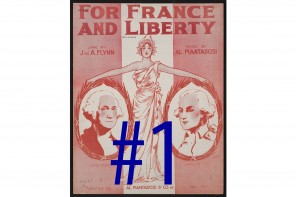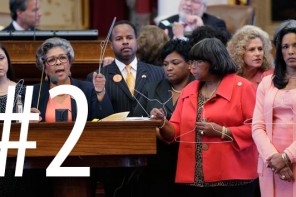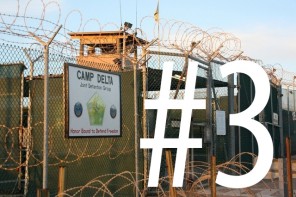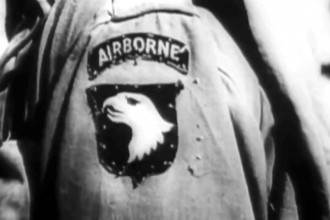Imagine your sister, mother and niece are rounded up by terrorists and taken to be sold as sex slaves. Would you just sit around and wait for someone to save them or for that matter save you? We’ve been waiting for a response from the females on the ground in ISIS terrorizes to react. Our top story this comes from the Wall Street Journal and looks at the female fighters of the PKK. The piece profiles a few women and gives credence to the idea that the PKK, a group on the US terror list, may be our best chance at retaliating to the ISIS threat. This concept is complex because Turkey views the PKK as a real threat to their boarders and to their overall security. Turkey started a bombing campaign over the weekend specifically targeting PKK locations in Northern Iraq. Turkey also started bombing ISIS holdouts. For more on these and other development on Turkey please check out our International In-Depth section for coverage of the issue.

The PKK and its Syrian affiliate have emerged as Washington’s most effective battlefield partners against Islamic State, also known as ISIS, even though the U.S. and its allies have for decades listed the PKK as a terrorist group. The movement in the past has been accused of kidnappings, murder and narcotics trafficking, but fighters like Ms. Ruken have presented the world an appealing face of the guerrillas—an image of women battling as equals with male comrades against an appallingly misogynist enemy.
Profiling female fighters this WSJ piece looks at a group gaining momentum as a possible ally in the region, despite historic tensions and vastly different beliefs.
SINJAR MOUNTAIN, Iraq—Nine years ago, Zind Ruken packed a bag and left her majority-ethnic-Kurdish city in Iran, escaping a brutal police crackdown and pressure to marry a man she’d never met.
Ms. Ruken’s journey provides a glimpse behind the remarkable rise of the Kurdistan Workers’ Party, or PKK, the cultlike Marxist group she fights for and whose triumphs against Islamic State have helped it evolve from ragtag militia to regional power player.
U.S. war planners have been coordinating with the Syrian affiliate—the People’s Defense Units, or YPG—on air and ground operations through a joint command center in northern Iraq. And in two new centers in Syria’s Kobani and Jazeera regions, YPG commanders are in direct contact with U.S. commanders, senior Syrian Kurdish officials said.
“There’s no reason to pretend anymore,” said a senior Kurdish official from Kobani. “We’re working together, and it’s working.”
By contrast, Ankara agreed only on Thursday to allow coalition airstrikes from an eastern-Turkey air base, after months of negotiations in which President Recep Tayyip Erdogan ’s government resisted international calls to enter the war with Islamic State. U.S. officials said the base deal shouldn’t affect U.S. air support to Kurdish fighters in Syria and may help increase collaboration with the YPG because jets and drones will be closer to the battlefield.
U.S. defense officials said coordination with YPG units, including some inside Syria, has improved the ability of coalition aircraft to strike Islamic State positions and avoid civilian casualties. U.S. Defense Secretary Ash Carter during a visit to the region this week said YPG forces in Syria are “extremely effective on the ground.”
Constantly shifting alliances in the region mean the PKK’s rise isn’t certain to continue. But the guerrilla group’s growing stature has alarmed Turkey, a crucial North Atlantic Treaty Organization ally of the U.S., with whom the PKK has fought a three-decade war costing some 40,000 lives. The PKK is in peace talks with Turkey, and a political party linked to the PKK won a record 12% of the vote in Turkey’s June parliamentary elections. Troubled by the PKK’s battlefield victories, Ankara has vowed to prevent the formation of a Kurdish state in Syria.
“We recognize YPG are fighting [Islamic State] and that Americans are giving support to it,” a Turkish foreign ministry official said. “We transmit our views to American allies.”
On Monday, an Islamic State suicide bomber killed 32 Kurdish and Turkish activists in a Turkish border town opposite the Syrian city of Kobani, a YPG stronghold. The PKK on Thursday said it had killed two Turkish police officers in retaliation for not stopping the bomb.
America’s association with a terror-listed Maoist-inspired militia, even if indirect, shows how dramatically Syria’s conflict has reconfigured regional alliances and eroded once-rigid borders.
Just two years ago, President Barack Obama told Turkey the U.S. would continue to aid its battle against PKK “terrorists.” The U.S. continues to share intelligence about the PKK with Turkey, and military officials from the two countries sit together in an Intelligence Fusion Cell in Ankara established by the George W. Bushadministration to help Turkey fight the group.
But now, “the U.S. has become the YPG’s air force and the YPG has become the U.S.’s ground force in Syria,” said Henri Barkey, a former State Department analyst on Turkey now at Lehigh University.
Some senior U.S. and British diplomats said the time has come for the U.S. and some European states to consider a broader rapprochement with the PKK. But U.S. officials said Washington is unlikely to revise the PKK’s terror listing without a green light from Turkey, which has itself sent mixed messages to Washington about its own dealings with the group.
‘We’re not terrorists’
“People look at us as if we’re terrorists and they put us on this blacklist. We’re not terrorists,” said Ms. Ruken, who like all PKK fighters uses a nom de guerre—hers means “alive smiling”—and declined to give her real name. “The Kurds know what we are fighting for. They know we will give our souls for them.”
The Kurdish guerrilla groups pledge allegiance to Abdullah Ocalan, the PKK chief imprisoned on a Turkish island since 1999. From jail in 2005, he established PKK affiliates that evolved into today’s YPG, HPG and PJAK.
The PKK and affiliates have car-bombed Turkish cities, kidnapped hundreds and killed Turkish and Kurdish state employees. In 2009, the U.S. Treasury Department designated their leadership as significant narcotics traffickers. The PKK ruthlessly dispatches Kurdish political rivals in Syria and elsewhere, according to New York based Human Rights Watch.
Zagros Hiwa, a PKK spokesman, said: “We have been defending our people against the denial and elimination policies of the Turkish state against the Kurds. Our struggle has always been on the basis of legitimate self-defense.”
The group’s utopian goals echo those of some Cold War-era leftist militias. It aims to create a Maoist-inspired agrarian society that opposes landowning classes, espouses gender equality and distances itself from religion. Its guerrillas speak of a leaderless society of equals but also glorify Mr. Ocalan with fanatical devotion. They talk of needing to inculcate Kurdish populations with their ideology, rigidly centralized around Mr. Ocalan’s writings.
Read the whole story on WSJ.com
Don’t forget to sign up for the newsletter to get the inside scoop!
Follow us on Instagram, twitter and Facebook to join the revolution!







